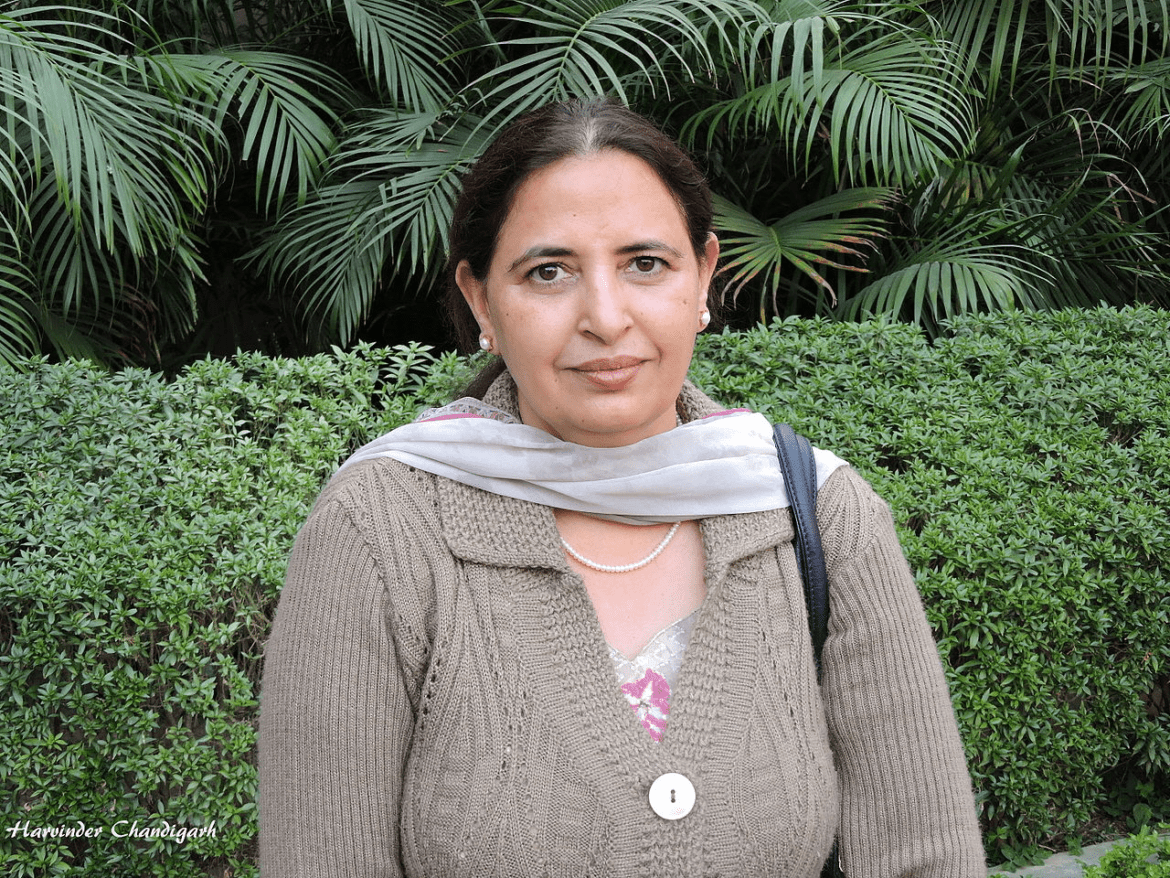AI Generated Summary
- As she has often said, poetry was not well received by her family when she began writing because during those times women were supposed to only take care of their homes and families, hence, Sukhwinder focuses on the experiences of women in her writing.
- Born in 1963 in a small village near Jalandhar (Punjab), Amrit began poetry at a very young age and since then become known for her powerful words and soulful depths.
- As it was then, her mother found her book of poetry and burnt it, beating Sukhwinder badly, forcing her to get married at the age of only 17 years.
“Assin umraan beetaian jiston lukh lukh ke
Ratin supne ch aya, kunda khol ho gaya!Jihna saaazan naal na c sadi sur mildi,
Geet jindagi da ohna sang bol ho gaya!”
(English Translation)
“The person I have spent my life hiding from,
came into my dreams last night, and I opened the door for him!
Those instruments which didn’t match my tune,
were only used in the very song of my life!”
A smile can show your happiness but your tears cannot reflect the extent of your pain. Many writers have tried to express pain, but only a few have translated it beautifully. Sukhwinder Amrit is one such Punjabi poetess who can even make stones cry with her words.
Punjabi literature has a rich tradition dating back centuries and its poets have contributed widely to the rich and social fabric of India. While some of these poets have always been in the limelight, a select few have been away from it. One such Punjabi poetess, Sukhwinder Amrit, made a significant contribution to the world of Punjabi literature.
Born in 1963 in a small village near Jalandhar (Punjab), Amrit began poetry at a very young age and since then become known for her powerful words and soulful depths. As it was then, her mother found her book of poetry and burnt it, beating Sukhwinder badly, forcing her to get married at the age of only 17 years. However, her husband, Amarjit, believed in her conviction and supported her to complete her education. She subsequently got her Master’s degree in Punjabi literature and served as a lecturer at Government College, Ludhiana, for a year.
Amrit’s poetry often brings to light issues related to women’s rights and gender equality. She uses her pen to challenge societal norms and traditions that perpetuate discrimination and inequality, especially with regard to women. As she has often said, poetry was not well received by her family when she began writing because during those times women were supposed to only take care of their homes and families, hence, Sukhwinder focuses on the experiences of women in her writing. She explores the complexities of human relationships and the struggles of marginalized communities.
She has published several collections of poetry including “Dhupp di Chunni” (2006), “Chirian” (2014), and “Neeleya Mora Ve” (Geet, 2012) which have been applauded by critics and readers alike. Not only poetry, but Amrit is also a Ghazal writer and singer. Her work has been praised for its honesty and authenticity. She has become the voice for those who are often silenced or ignored. Amrit’s Ghazal collections include “Chiraghan Di Daar” (1999), “Puniyaan (2011), and ‘Kesar De Chitte (edited 2003) among others.
One of her most notable contributions to Punjabi literature is her use of her mother tongue itself. She has won hearts and accolades for her grip over the language and her ability to create poetry that is accessible and deeply meaningful to Punjabi speakers. Her work has been instrumental in promoting Punjabi as a literary language, inspiring new-age Punjabi writers and poets.
Sukhwinder says that her book and notebooks are all her life and by staying true to them she received the ‘Sulabh Sahitya Akademi Award in November 2017, at the All India Poetess Conference. In addition to her poetry, she is also known for her social activism and advocacy of women’s rights. She has always spoken out against violence and discrimination against women and has taken up women’s empowerment through various initiatives. Her work reflects her commitment to these issues and her words help to raise awareness and promote change.
Her poem, “Mavaan te Dheeyan”, says,
Har jug vich maavan
apni dheeyan nu kuj na kuj
jaroor akhdiya ne,
jo jindagi vich ohna de kaam ave,
ohna da raah roshnave,
Meri maa ne mainu akheya si
seyaniya kudiya lukh lukh ke rehendiya,
jukh jukh ke turr diyan,
na uchha boldiya,
na uchha hassdiyan,
kudhiyan apna dukh kisse nu
na dasdiyan…
This loosely translates as, in every era, mothers give advice to their daughters which is useful in their lives and lights their path. My mother also told me that good girls remain inconspicuous, bow their heads while walking, neither do they talk loudly nor laugh loudly, and never share their sorrows with anyone.
However, she goes on to say that none of her mother’s advice was useful for her, rather they were like walls in her way, walls that only hindered her growth and happiness. She, instead, advised her daughter to pave her way according to her desires and not make unnecessary compromises. She told her daughter to attain so much glory that all walls, all darkness, and all bonds break and bow down to her. She should live and die with respect but not compromise her desires. Amrit further writes that one day even my daughter will guide her daughter, maybe something better, words more beautiful because in every era mothers teach various life lessons to their daughters which lead their way. Maybe this way things will change… maybe this way women will begin to be treated better…




